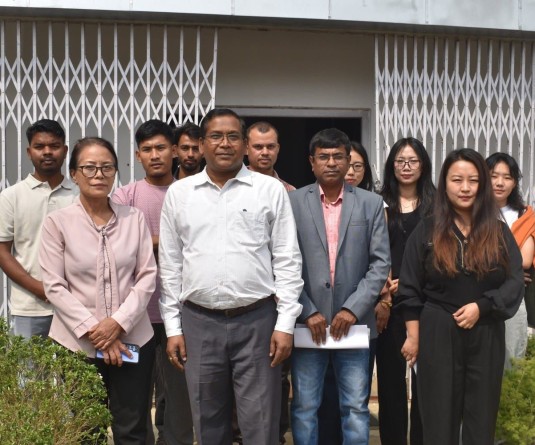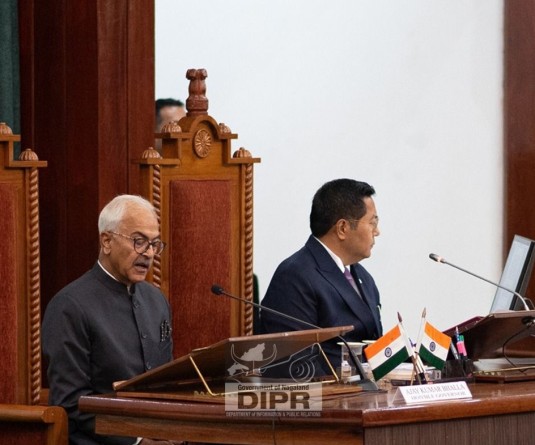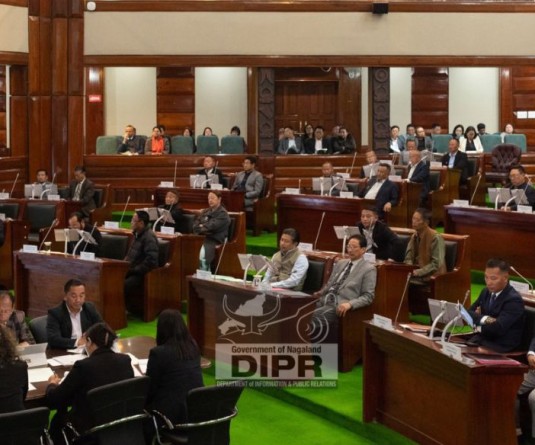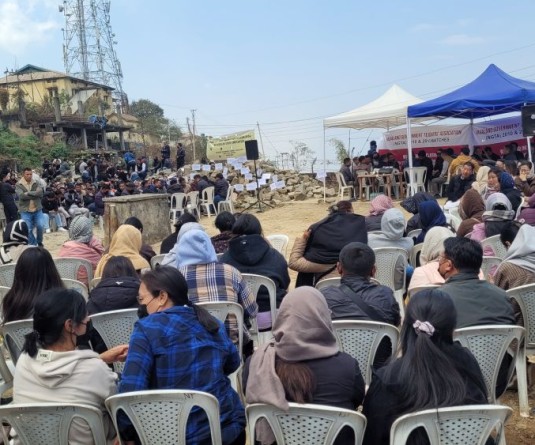
Tuensang, September 10 (MExN): Reaffirming its stand on the issue of reservation for Backward Tribes in the Nagaland State Entrance Exam (NSEE) II, Eastern Nagaland College Students’ Union (ENCSU) today appealed to all not to “pull” the issue along tribal line or take it personally. The union also asserted that it will not compromise with its stand until four missing seats from the reservation quota are given back.
A press statement issued by ENCSU Chairman, Longre Chang and Joint Secretary, Nokchem Angth reminded that the Supreme Court in its judgment had directed the beneficiary States/UTs to conduct its own exam except the State/UT sitting for All India Pre Medical Test (AIPMT). Thus, there is no direction to follow MCI rules as insisted by Technical Education Department, it stated.
If at all the State wants to follow Medical Council of India (MCI) guidelines, ENCSU said, the Department has to implement it strictly. In this regard, the statement pointed out that MCI has not given any authority to any states to conduct an exam by the State Board of Education (NBSE in Nagaland). Therefore, the exam should be conducted by the Central Board of School Education (CBSE), it said. The MCI, according to ENCSU, has also said nothing about setting up Common Selection Board (CSB), but the Nagaland state did headed by Parliamentary Secretary, Technical Education. “So this body is an unauthorized.” If the Department has selected the candidates based on MCI, ENCSU questioned, “who gave them to give 15% reservations to the BTs of Nagaland when there is nothing as such in the same rules.” According to MCI guidelines, it added, students need to get 40% in 10+2 exam in PCB (Physics, Chemistry and Biology).
ENCSU pointed out that as directed, Nagaland State also conducted its own exam known as Nagaland State Entrance Exam II by its own framed rules. Since the State conducted it with its own rules, MCI guidelines has nothing to do with the NSEE II exam, it asserted.
In the State rules, according to the statement, there is no mention of 40% cut off mark that is required by the candidates, but there is a mention of "required minimum qualifying mark". In this, ENCSU questioned what the "minimum" means. “According to this clause of the state rules, any candidate who appears/sits for NSEE II exam 2016 is qualified to study MBBS & BDS courses.”
It added that since State rules is standing, “we cannot take MCI guidelines and we cannot allow two rules in one exam to enforce.”
Meanwhile, it highlighted that there is a reservation for Backward Tribes, but the cut off mark is same for both General and BTs showing that “in reality the reservation has no meaning.”
Further, it was stated that as per the MCI rules, States have been empowered with a Discretion power to lower down the minimum mark in consultation with the Medical Council of India (MCI) if the maximum number/s of the respective category could not reach the minimum qualifying marks.
The ENCSU also reminded of the 2014 scenario when there was no State Level Exam, but only AIPMT. Then, only one Naga could attain the 40% cut off mark. Therefore, the government conducted another exam (Nagaland State Pre Medical Test (NSPMT) to fill the vacant seats. But, there too only 22 candidates could reach the required cut off mark. Again to fill the remaining 20 plus vacant seats, the government and department used another method by compiling the marks of AIPMT and NSPMT and sent the students to study the MBBS & BDS courses, the statement said. “So why not the same mechanism be applied when the candidates from BTs could not reach the cut off mark?” it asked. “They can do for others but not for people who had enough of discrimination, deprivation and struggling to reach the par with rest of the society?”
The students’ union further expressed surprise to see the arrangement of NSEE II Results. The Common Selection Board (CSB), it claimed, had put the students who secured more marks in the backward/ reserved category, whereas students who secured less mark are in merit list. ENCSU therefore appealed to the general public to analyse the results carefully and judge accordingly.
In light of the above points, ENCSU once again appealed to the general public not to misjudge its stand. It also asked any individual having doubt on its stand to come forward and clarify the confusion.






